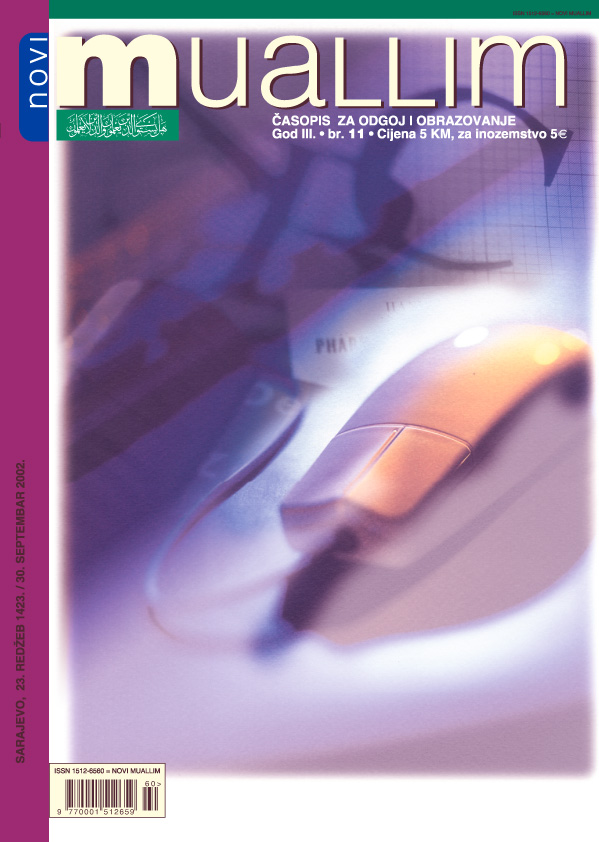PUNISHMENT AS AN EDUCATIONAL TOOL
DOI:
https://doi.org/10.26340/muallim.v3i11.1462Abstract
Both Muslim and non-Muslim authors are of the differing opinions regarding a corporal punishment as an educational tool. Some consider it acceptable, pulling forward a maxim on "heavenly origins of spanking", while others hold that students should never be beaten since this is against their dignity. This difference in understanding is noticeable among our people too. Generally speaking, for previous generations the corporal punish.men twas most often used form ofupbringing tool and, very often, they've considered it lo be a form of the religious rule of conduct, while younger generations have great reservations towards this practice. There is a wide range of different means that could be used to deter a child from engaging in unacceptable and harmful practices, but we too easily just reach for a stick. Having this in mind, we are than not to be surptised by the high rate of delinquent behavior, crime and immorality because violence can only result in more violence. On the other hand, only patient and tenacious upbringing can mould boys and girls into stable, resolute, capable and good-natured individuals. Islam, as we have seen, does recognize and allow corporal punishment. However, among different tools, corporal punishment is the last resort in the upbringing process. As long as other tools b1ing results, punishment, especially corporal one, is not to be used. However, once all other possibilities are exhausted with no results, only then one can resort to punishment, but, again, with caution and st1ict adherence to the conditions set up by the Islamic scholars. And with bearing in mind that, the God's Messenger (a.s.), the best of educators, has never beaten a single child, wife or a servant!
Downloads
Published
How to Cite
Issue
Section
License
Naknada:
a. Časopis ne naplaćuje naknadu za obradu članaka (APC) i naknadu za podnošenje članaka.
Autori koji objavljuju u ovom časopisu pristaju na sljedeće uvijete:
- Autori zadržavaju autorska prava i pružaju časopisu pravo prvog objavljivanja, pri čemu će rad jednu godinu po objavljivanju biti podložan licenci Creative Commons imenovanje koja omogućuje drugima da dijele rad uz uvijet navođenja autorstva i izvornog objavljivanja u ovom časopisu.
- Autori mogu izraditi zasebne, ugovorne aranžmane za ne-ekskluzivnu distribuciju rada objavljenog u časopisu (npr. postavljanje u institucionalni repozitorij ili objavljivanje u knjizi), uz navođenje da je rad izvorno objavljen u ovom časopisu.


